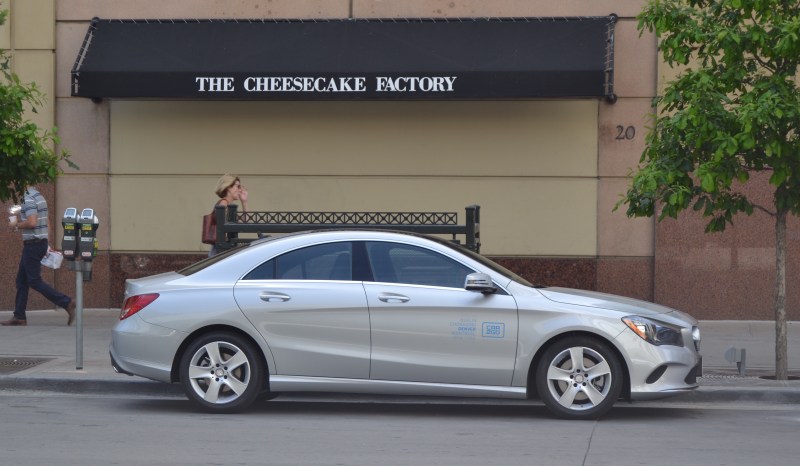As Car2Go Pulls out of Denver, Revenue Plummets at Local Carshare Nonprofit

Car2Go may only be the beginning of the demise of car sharing in Denver.
The company will stop operating in the Mile High City on Oct. 31, thanks to a “low adoption” rate, according to spokesman Kendell Kelton. Meanwhile another service, the local nonprofit eGo Carshare, is shrinking.
The organization saw a 21 percent decline in revenue in 2017 compared to 2014 when the organization’s income peaked, according to tax documents. Peter Krahenbuhl, the executive director of eGo CarShare, says the nonprofit responded to changing demand when it reduced the size of its fleet in Denver and Boulder to around 50 cars.
“We’ve been working to right-size (and better locate our vehicles) in order to meet the needs of our 3,500+ members in Denver and Boulder County,” he said in an email. Krahenbuhl also cited “new market entrants” like Uber and Lyft as part of the reason people are checking out cars less often.
Car sharing is not the only industry to feel the impact of changing shopping and mobility habits. As ride-hail services like Uber and Lyft became more widespread, bus ridership has declined. The death of shopping malls, a quarter of which are expected to close in coming years, may also reflect new online shopping habits that no longer need cars.
“What we’ve seen with Car2Go, and in the past with the likes of Enterprise, Maven, etc., is that these larger companies think this is a potentially lucrative space to enter, without realizing how tough this market actually is, and how increasingly competitive it is,” said Krahenbuhl.
The existing members of car sharing services seem to be checking out cars less frequently, too. Car2Go offers 330 cars to its 93,616 members in Denver, according to Kelton. But the company offered the same number of cars to the 42,000 members it had in 2017. Across all car sharing companies in Denver, just 60,535 people had used such a service in 2018, according to numbers the industry provided to the city.
The decline of car sharing could hurt the city’s chances of reaching its mobility goals, like reducing demand for parking, lowering the number of vehicle miles traveled and shrinking the number of single-occupancy vehicle trips in the city.
Denverites reported that they skipped using a car and walked, biked and used public transit more frequently after joining car sharing services, according to a city survey. But the number of single occupancy vehicle trips has remained frozen at 73 percent for many years despite Denver’s goal to cut such trips to 60 percent by the end of this year.


